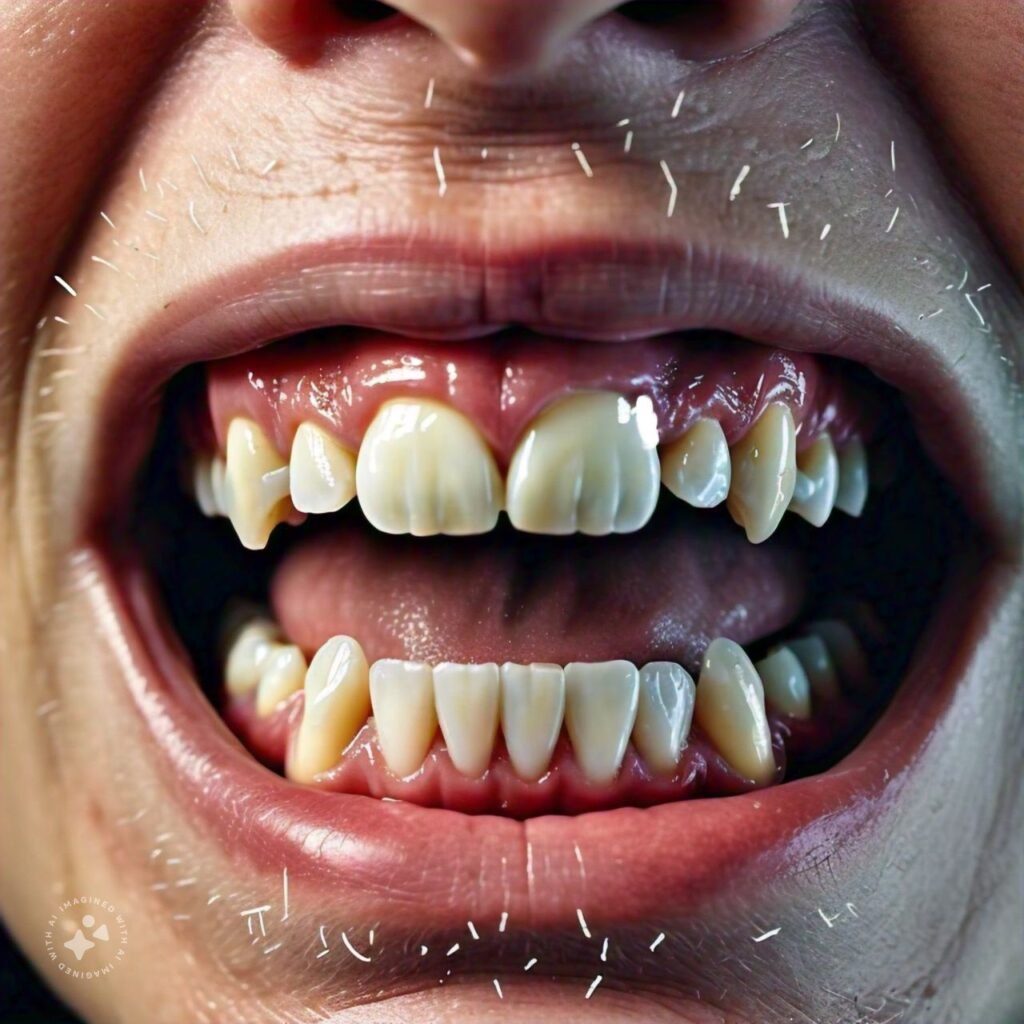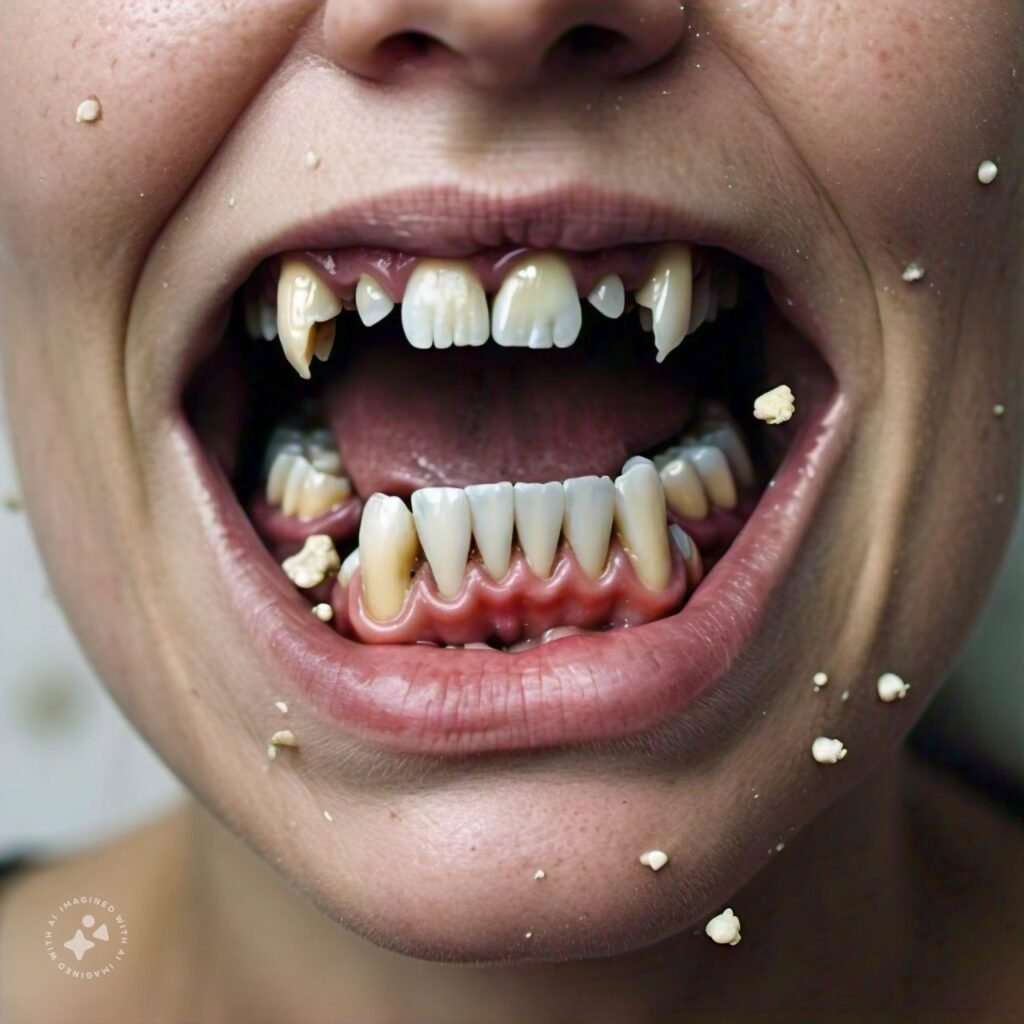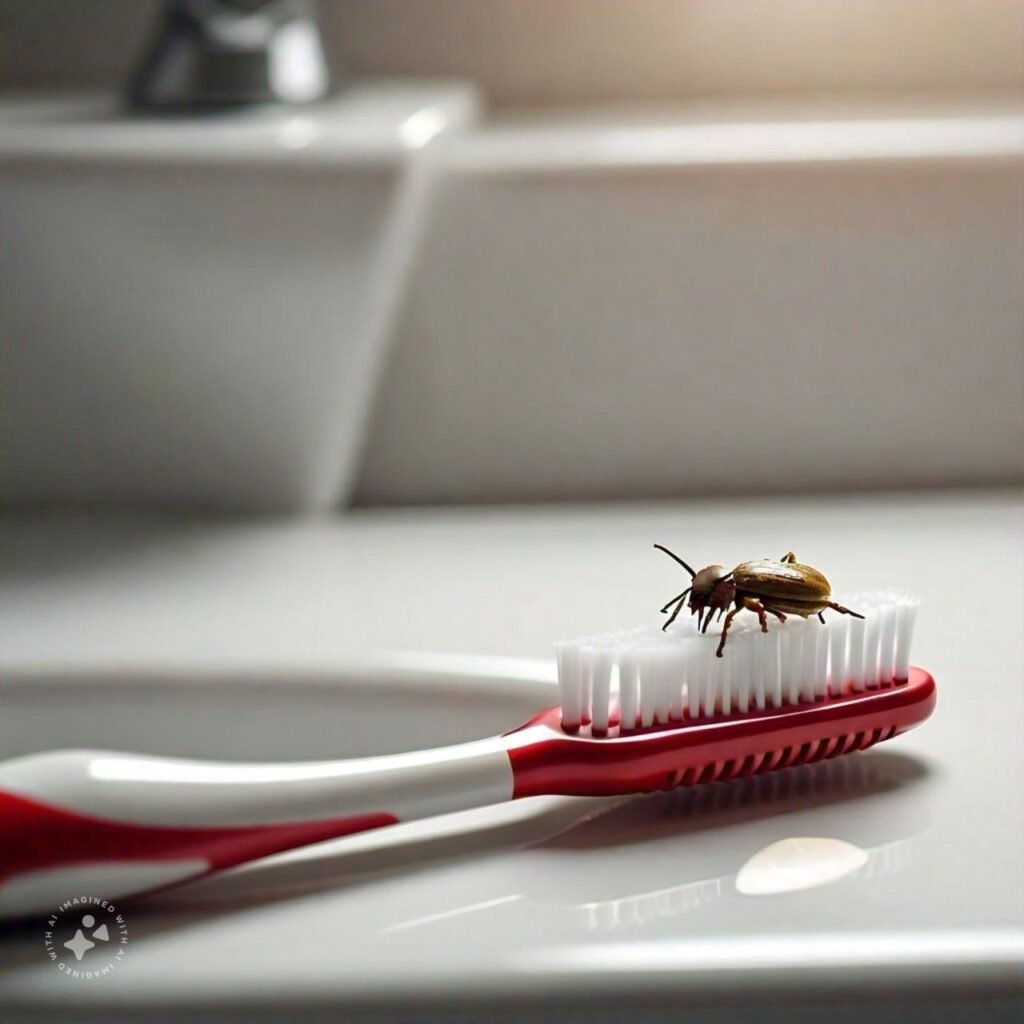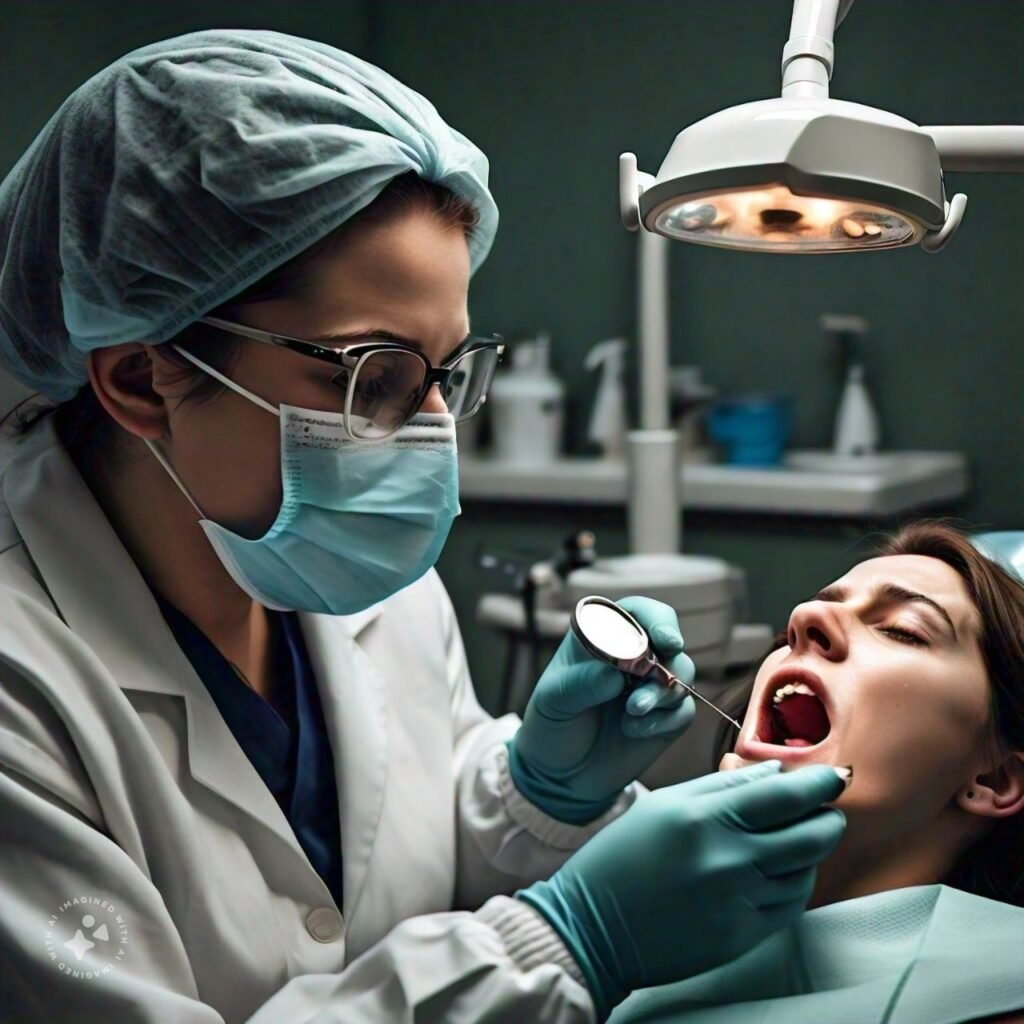
Lyme disease is a bacterial infection transmitted through tick bites. It affects multiple body systems, causing symptoms such as joint pain, fatigue, and, in some cases, neurological issues. But how does this affect your teeth? Can Lyme disease actually cause your teeth to fall out? This guide will examine the relationship between Lyme disease and dental health, emphasising key oral symptoms, risks, and prevention strategies.
Did you know that Lyme disease affects more than 300,000 Americans every year? With numbers like that, it’s no wonder people are asking, “Does Lyme disease make your teeth fall out?” Let us figure out this dental mystery together! By the end, you will have a clear understanding of how to maintain a healthy smile while dealing with Lyme disease.
What is Lyme Disease and How Does It Affect the Body?
Lyme disease is an infection caused by the bacteria Borrelia burgdorferi. Lyme disease is more than a simple tick bite. Lyme disease is an infection caused by bacteria called Borrelia burgdorferi. This bacteria is transmitted to humans via the bite of infected black-legged ticks, also known as deer ticks.

Lyme disease can affect a person’s entire body once infected. Early symptoms include fever, headache, fatigue, and erythema migrans, a distinctive skin rash. However, if not treated, the bacteria can spread to the joints, heart, and nervous system.
In the early stages, patients frequently experience flu-like symptoms as well as the characteristic bull’s-eye rash. As the disease progresses, it may cause more severe symptoms in the joints, heart, and nervous system. While Lyme disease is best known for its effects on these systems, many people are curious about its effect on oral health.
Impact of lyme disease on Body Systems
Lyme disease affects multiple systems in the body, leading to symptoms such as:
- Muscle and joint pain: Chronic Lyme disease can cause severe joint pain, often affecting the knees.
- Fatigue: Many individuals with Lyme disease experience extreme tiredness that doesn’t go away with rest.
- Neurological problems: In advanced stages, Lyme can cause inflammation of the brain, memory issues, and even paralysis in rare cases.

Oral Health and Lyme Disease
To understand the potential link between Lyme disease and dental health, it’s crucial to recognize the mouth-body connection. Our oral health is intimately tied to our overall well-being, and systemic diseases can frequently manifest symptoms in the mouth. For example, diabetes can increase the risk of gum disease, while certain autoimmune conditions can cause oral ulcers.
Inflammation is a major factor in both Lyme disease and other oral health issues. Chronic inflammation, a hallmark of Lyme disease, may have an impact on the health of your gums and tooth supporting structures. This connection has led some to speculate about the potential for Lyme disease to cause tooth loss.

Does Lyme disease make your teeth fall out?
The short answer is no, Lyme disease does not directly cause tooth loss. There’s no evidence to suggest that the Borrelia burgdorferi bacteria attack tooth structures or directly lead to teeth falling out. But it can effect indirectly let me explain to you how.
Indirect Effects on Dental Health effect Lyme disease
Lyme disease does not directly make your teeth fall out. However, the immune response it causes can lead to dental problems, potentially resulting in tooth loss over time. Inflammation is one of the ways this can occur. When the immune system is overworked in fighting the infection, inflammation can spread throughout the body, including the mouth. Gum inflammation can increase the risk of gum disease, which, if not treated, can lead to tooth loss.

Immune System and Inflammation effect Lyme disease
- Lyme disease creates an immune response that can cause the body to attack not only the bacteria but also healthy tissues. This reaction leads to chronic inflammation, which can weaken the gums and oral tissues.
- Weakened gums may struggle to hold onto the teeth properly, increasing the risk of periodontal disease (gum disease).
The myth that is Does Lyme disease make your teeth fall out? So it’s important to debunk the myth that Lyme disease causes immediate or inevitable tooth loss. This misconception may stem from the fact that some Lyme patients experience dental issues, but these are often due to indirect effects or coincidental problems rather than a direct result of the disease.
Cases of Dental Issues in Lyme Patients
Some Lyme disease patients have reported jaw pain, gum inflammation, and tooth sensitivity. Although uncommon, dental problems in Lyme patients can worsen if the disease is left untreated for an extended period of time. Chronic Lyme disease can cause other complications, such as weakened immunity, making the mouth more susceptible to infections that could result in tooth loss.
Oral Symptoms of Lyme Disease: What to Watch For
Gum Inflammation and Periodontal Disease
Chronic inflammation in Lyme disease can cause gum problems, with periodontal disease being one of the most serious concerns. Periodontal disease, also known as gum disease, is a severe infection that affects the gums and can destroy the bone that supports the teeth.
- Patients with Lyme disease may experience red, swollen, or bleeding gums, which are early signs of gum disease.
- If gum disease progresses, it can cause gum tissue loss and even tooth loss.

Jaw Pain and TMJ Disorders
Temporomandibular joint (TMJ) disorders are another common symptom among Lyme disease patients. TMJ disorders cause pain or discomfort in the jaw, making it difficult to chew, speak, or even open the mouth.
- Lyme disease can inflame joints, including the jaw joint.
- TMJ symptoms can include jaw pain, clicking sounds while chewing, and difficulty moving the jaw.
Tooth Sensitivity and Cavities
- Some Lyme disease patients experience increased tooth sensitivity, particularly to hot and cold temperatures.
- In some cases, the body’s decreased ability to fight infections can raise the risk of cavities.
Being aware of these symptoms and addressing them early can prevent more serious dental problems down the road.
How to Protect Your Teeth if You Have Lyme Disease
If you’re dealing with Lyme disease, it’s more important than ever to maintain good oral hygiene. Here are some tips to keep your smile healthy:
- Brush your teeth twice a day with a soft-bristled toothbrush and fluoride toothpaste.
- Floss daily to remove plaque from between the teeth and along the gumline.
- Use alcohol-free mouthwash to reduce bacteria without drying out your mouth.
- Stay hydrated to avoid dry mouth. For added moisture, consider using a mouth spray containing xylitol.
- Maintain a well-balanced diet high in vitamins and minerals to improve both your overall and oral health.
Since Lyme disease can make your oral tissues more vulnerable, maintaining a good oral hygiene routine is important for avoiding dental issues.

Consult a Dentist Familiar with Lyme Disease
For Lyme patients, more frequent dental check-ups may be beneficial. Aim for visits every 3-4 months rather than the standard twice-yearly appointments. This allows your dentist to monitor your oral health more closely and address any issues promptly.
Benefits of Regular Check-Ups
- Regular dental checkups are vital for early detection of problems before they become severe.
- Your dentist may recommend additional cleaning or treatments to protect your gums.
When discussing your health with your dentist, be sure to mention your Lyme disease diagnosis. This information can help your dental professional provide more tailored care and be aware of potential interactions between Lyme treatments and dental procedures.

When to Seek Help: Red Flags or Warning Signs for Dental Issues in Lyme Patients
Here are some red flags that warrant a visit with your dentist:
- persistent jaw pain or difficulty chewing.
- Rapid changes in your bite
- Increased tooth sensitivity.
- Gum inflammation or bleeding
- Chronic dry mouth.
- Unexplained taste changes
- If you are bedridden due to your Lyme disease, you can also read this Read more.
Remember, effective communication with your healthcare providers is essential. Don’t hesitate to discuss any oral symptoms with both your Lyme disease specialist and your dentist. A collaborative approach between medical and dental professionals can provide comprehensive care to Lyme patients.

Treatment Options for Lyme Disease-Related Dental Issues
Dental Treatments to Combat Inflammation
If you develop gum disease or inflammation, your dentist may recommend deep cleanings or medicated mouthwashes to reduce bacteria and promote gum healing. In some cases, dental surgeries may be required to treat severe gum disease.
The role of antibiotics in oral health
Antibiotics are extremely important in the treatment of Lyme disease and can also help prevent oral infections. However, long-term antibiotic use may cause side effects such as dry mouth, which can increase the risk of cavities.
- Consult with both your dentist and doctor to ensure that antibiotics won’t negatively affect your oral health.
Natural Remedies to Support Oral Health
Some natural remedies and supplements can help improve your oral health while you treat Lyme disease. This includes:
- Probiotics can help balance oral bacteria and reduce inflammation.Probiotics to balance oral bacteria and reduce inflammation.
- Vitamin C and CoQ10 can help strengthen your gums and promote healing.
Natural remedies can complement your regular dental care routine, helping to maintain a healthy mouth despite Lyme disease complications.
conclusion
Finally, while Lyme disease does not directly cause tooth loss, it is clear that this complex illness can have a wide-ranging impact on your body, including your mouth. By staying informed and proactive about your dental health, you can keep your smile bright even while battling Lyme. Remember: your teeth are counting on you! Do not let Lyme disease damage your oral health. Schedule an appointment with your dentist today to keep those pearly whites where they belong: in your mouth.
FAQs
Can Lyme disease make your teeth fall out?
No, Lyme disease does not directly cause tooth loss. However, the immune response and chronic inflammation associated with Lyme disease can increase the risk of gum disease, which may lead to tooth loss if untreated.
Tick bite teeth falling out is it possible?
A tick bite itself does not directly cause teeth to fall out. However, if the tick transmits Lyme disease, the infection can lead to complications like gum inflammation, which could contribute to tooth loss over time if left untreated.
Does Lyme disease make you lose your teeth?
While Lyme disease does not directly make you lose your teeth, the chronic inflammation and immune dysfunction it causes can increase the likelihood of developing gum disease, which may eventually lead to tooth loss if not properly managed.
How does Lyme disease affect oral health?
Lyme disease can cause inflammation in various parts of the body, including the gums and jaw. This may increase the risk of gum disease, jaw pain, and tooth sensitivity.
Can Lyme disease cause gum disease?
Yes, Lyme disease can trigger inflammation in the gums, leading to periodontal (gum) disease. Gum disease is a serious infection that can damage the tissue around the teeth, potentially leading to tooth loss if not properly managed.
What are the oral symptoms of Lyme disease?
Oral symptoms of Lyme disease may include gum inflammation, tooth sensitivity, jaw pain (often related to TMJ disorders), and an increased risk of cavities due to a weakened immune system.
Can Lyme disease cause jaw pain?
Yes, Lyme disease can cause inflammation in the temporomandibular joint (TMJ), leading to jaw pain, discomfort, and difficulty chewing.
What should I do if I have dental problems and Lyme disease?
It’s important to maintain a strong oral hygiene routine and consult a dentist who is familiar with Lyme disease. Regular checkups, proper brushing, and flossing can help prevent dental issues associated with Lyme disease.
How can I protect my teeth if I have Lyme disease?
You can protect your teeth by brushing twice a day, flossing daily, using mouthwash, staying hydrated, and visiting your dentist regularly for cleanings and checkups.
Are there natural remedies for oral health in Lyme disease patients?
Yes, natural remedies like probiotics can help balance oral bacteria, while supplements such as Vitamin C and CoQ10 may strengthen gums and improve healing. Always consult with your healthcare provider before starting any natural treatments.
Can long-term use of antibiotics for Lyme disease affect my teeth?
Yes, long-term antibiotic use can lead to dry mouth, which may increase the risk of cavities and other dental issues. Be sure to stay hydrated and talk to your dentist about managing side effects from antibiotics.
Should I see a dentist if I have Lyme disease?
Yes, regular dental visits are crucial, especially if you have Lyme disease. A dentist can monitor for early signs of gum disease, jaw pain, or other dental issues and provide targeted treatments to protect your oral health.

